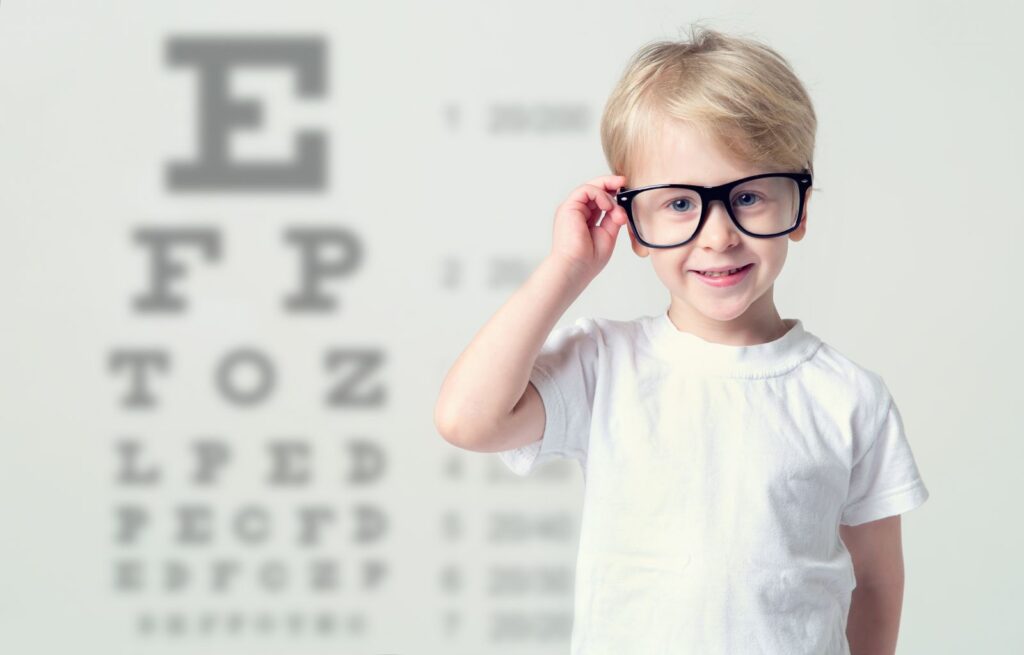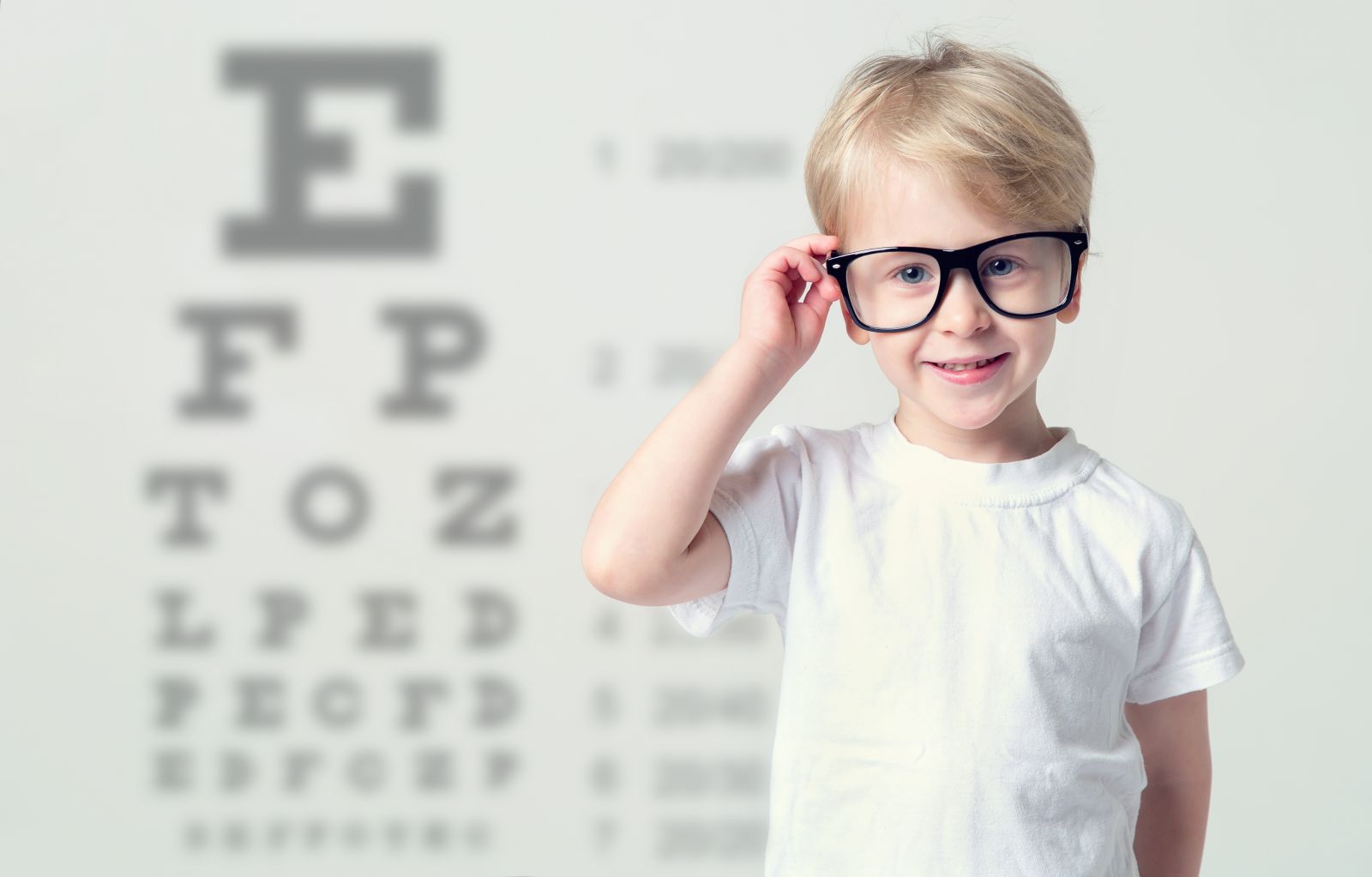
Almost 7% of children younger than age 18 are diagnosed with an eye or vision condition. Another 3% are blind or visually impaired.
Instead of waiting until your child develops a problem, it’s important to take your children to a pediatric eye test. Regular appointments can help you detect a potential problem early on. Then you can ensure your child receives the attention and treatment they need.
Not sure when to take your child to see a kid’s eye doctor? Keep reading to learn everything you need to know before their first appointment!
Why Exams Are Important
Before taking your child to a pediatric eye doctor, it helps to understand why regular appointments are important.
Regular eye exams can help confirm your child’s eyes are healthy. Otherwise, a potential vision issue could impact your child’s performance in school. It could impact their safety as well.
Scheduling regular appointments early in your child’s development can ensure their eyes are functioning properly. Eye health is important to make sure your child can see at all distances.
If your child’s eyes are healthy, they can also focus more comfortably, too. An eye doctor will also confirm that your child’s eyes move properly and comfortably.
Proper eye function is important as your child reaches developmental milestones. Poor vision, on the other hand, can impact your child’s ability to learn and read. It could impact their ability to focus, too.
Eye Doctors
You can have your child’s eye health and vision assessed by an optometrist or ophthalmologist.
An optometrist provides comprehensive eye care. You can look for an optometrist that specializes in pediatric eye problems.
You can also visit a pediatric ophthalmologist. Like optometrists, these doctors specialize in eye care. However, ophthalmologists can perform surgery, which optometrists don’t.
You might have a pediatrician or family doctor check your child’s eyes. However, a brief examination from one of these doctors doesn’t replace an assessment from an eye doctor.
Optometrists and ophthalmologists have specialized training, allowing them to thoroughly assess your child’s eye health.
When to Have Your Child’s Eyes Checked
According to Nemours, routine medical exams for your children should include:
- A general eye health examination for newborns
- An eye examination if your newborn is at high-risk due to a family history of eye problems
- Routine screenings for eye health while your infant is in the first year of their life
- Eye health screens and vision acuity tests when your child is about 3 and a half
- Vision and eye alignment checks when your child is 5 years old
- Routine screenings after your child’s fifth birthday
- Annual checkups by an eye doctor to check for changes if your child wears glasses or contacts
Try to schedule your child’s first comprehensive eye exam when they’re 6 months old. School-aged children, on the other hand, should have exams every two years. If they require vision correction, they’ll likely need exams each year.
You might want to schedule an appointment for your infant or toddler if you notice any problems, including:
- Sensitivity to light
- Excessive tearing
- Abnormalities (such as white pupils or bulging eyes)
- Eyes that don’t focus in the same direction
Visiting an eye doctor can ensure your child’s vision is strong. Otherwise, poor vision could delay your child’s development.
For example, your child might have difficulty walking or crawling. By visiting a pediatric eye doctor, you can correct these vision issues before they become worse.
What to Expect During Your Child’s Exam
Your child’s first eye appointment will usually include:
- Case history
- Vision testing
- Eye alignment testing
- Eye health evaluation
Your pediatric eye doctor will use these tests to determine if your child needs glasses.
Before your child’s first appointment, see if you can’t complete their case history form ahead of time. You can usually download these forms from the eye doctor’s website before your child’s appointment.
The case history worm will ask questions about your child’s:
- Birth history
- Birth weight
- Whether or not they were full-term
- If there were complications during pregnancy or delivery
- Medical history
- Current medications
- Past or current allergies
Let your kid’s eye doctor know if they experience any symptoms, including delayed motor development or failure to maintain eye contact. You should also make note of symptoms such as frequent eye rubbing and blinking.
Let the doctor know if your child experiences poor eye tracking skills, too. If your child has failed a vision screening test at school, let the pediatric eye doctor know.
Otherwise, let the eye doctor know if your family has a history of eye diseases, amblyopia, or strabismus.
Common Tests for Young Child
By the time they’re 6 months of age, your child will see just as well as an adult in terms of color vision, depth perception, and focusing ability.
In order to confirm your child’s eyes and functioning and developing properly, the doctor will perform a series of tests.
First, they’ll use tests of pupil responses to make sure the child’s pupils open and close properly. These tests will make sure the pupil functions in the presence and absence of light.
Next, the fixate and follow tests will make sure your child’s eyes can fixate on an object and follow it as it moves.
A preferential looking test, on the other hand, uses cards to test your child’s vision capabilities. This test is ideal if your child is too young to use an eye chart.
Symptoms to Watch For
Before your kid’s eye doctor appointment, make note if they experience any behaviors or symptoms, including:
- Complaining their eyes hurt
- Double vision
- Losing their place while reading
- Confusing words that look alike
- Signs of poor reading comprehension
- Complaining of headaches
- Sloppy writing
- Avoiding reading, writing, or other close work
- Difficulty concentrating
- Squinting when they’re reading
If your child experiences these symptoms before their next appointment, call their eye doctor.
Schedule an Appointment: When to Take Your Child to a Pediatric Eye Doctor
Don’t wait to give your child the help they need.
Instead, determine when to take your child to see a pediatric eye doctor based on their age and symptoms. By visiting a kid’s eye doctor, you can ensure your child’s eyes function properly.
Better eyesight will improve their overall development and quality of life. Isn’t that what every parent wants?
Searching for more tips? Explore our latest Health Tips guides today!
